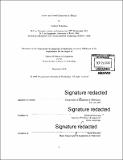Stress and vowel harmony in Telugu
Author(s)
Kolachina, Sudheer
DownloadFull printable version (4.011Mb)
Other Contributors
Massachusetts Institute of Technology. Department of Linguistics and Philosophy.
Advisor
Edward Flemming.
Terms of use
Metadata
Show full item recordAbstract
This thesis presents a study of vowel harmony in Telugu, a Dravidian language. Vowel harmony in this language is manifest primarily in the form of vowel alternations in paradigms triggered by suffixes. I present a robust factual generalization that holds true of alternations in different types of nominal and verbal stems- vowels in unstressed syllables change to agree with a suffix vowel, with respect to either backness or height. Stress is the main conditioning environment for blocking of harmony. I show that secondary stress in Telugu can be inferred based on the pattern of vowel harmony. I account for this pattern of stressed vowels resisting harmony using positional faithfulness. Since stress-conditioned harmony is relatively uncommon in natural language, the account of vowel harmony in Telugu presented here helps to fill out the typology of stress-harmony interactions. I also report a production experiment which shows that secondary stress has a significant effect on syllable duration and is therefore, phonetically 'real' in this language.
Description
Thesis: S.M. in Linguistics, Massachusetts Institute of Technology, Department of Linguistics and Philosophy, 2016. Cataloged from PDF version of thesis. Includes bibliographical references (page 48).
Date issued
2016Department
Massachusetts Institute of Technology. Department of Linguistics and PhilosophyPublisher
Massachusetts Institute of Technology
Keywords
Linguistics and Philosophy.